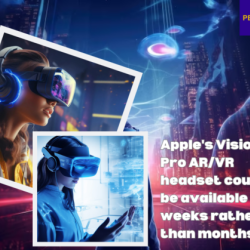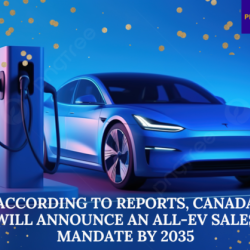To make augmented reality and virtual reality headsets more widely used and draw in more users, analysts advise technology producers to increase the number of applications, provide more non-gaming content, and lower the overall cost of hardware and software.
The availability of content is one of the main obstacles. The content is scarce even among that specific group of users. In the best case scenario, there might be great value for a small group of consumers for a brief period of time.
Other obstacles include a lack of comfort, such as difficulty using the gadget, accessibility to the device, affordability, and control.
The volume of global shipments of AR and VR headsets dipped for the fourth consecutive quarter in the three months that ended on June 30, according to the International Data Corporation, which did not provide specific numbers.
“Consumers are under a lot of pressure to limit their spending or available cash. When it comes to technology and entertainment, they are very much backed into a corner and frugal with their spending, according to Naeem Aslam, chief investment officer of Zaye Capital Markets.
Although there is still a long way to go, virtual reality headsets are the future and may be the next big thing, according to experts. The cost of the products and the incentives that the companies will offer customers to gain their trust will be crucial considerations.
On Wednesday, Meta Platforms, a subsidiary of Facebook, unveiled the Quest 3, a high-end mixed-reality headset with a $499.99 price tag.
According to IDC, Meta held a 50.2% market share during the June quarter, followed by Sony (27.1%) and ByteDance (9.6%).
Apple, a manufacturer of iPhones, joined the market in June when it unveiled the long-awaited augmented reality headset Vision Pro, which starts at $3,499. Early in 2019, the device will be accessible in the US.
According to Jitesh Ubrani, research manager at IDC, “in the long run, Meta will face competition from the likes of Apple, particularly as the market tries to move beyond the core gaming audience.”
At the moment, the VR market is mostly driven by gaming… However, the upcoming headsets will be able to deliver experiences that will let users combine the real and virtual worlds. If developers build distinctive experiences for companies and bigger audiences, this has the potential to attract a larger audience.
According to Akash Balachandran, research manager at IDC, the Middle East market has been increasing spending on VR devices, “albeit more slowly than anticipated.”
“The high ASPs [average selling prices] on popular devices, as well as the lack of locally relevant content, has hampered otherwise quicker adoption [in the Middle East],” the author noted.
AR and VR enhance how users view and interact with their surroundings by seamlessly fusing digital aspects into the real world.
While AR adds digital overlays to the physical world, VR immerses people in computer-generated worlds.
VR headsets with display panels, motion sensors, and audio systems that all work together to offer interactive user experiences make these experiences possible.
“Meta is more concerned with experiences and games… When compared to other firms like Apple, it is compromising on specs in order to be more affordable, according to Joao Sousa, senior partner at advising and investment firm Delta Partners.
“However, the crucial query is regarding the timing of acceptance and volume delivery for each technique. For some time, the Apple Vision Pro will fill a certain niche. It will take two to three years to scale.
Some analysts, however, are upbeat about the expansion of the AR/VR headset market.
According to Thomas Monteiro, senior analyst at Investing.com, “we must grasp the adaptability and purchasing power of [the] US consumers, who are constantly ready to be first on the next trend.
“Having said that, mass adoption of virtual reality (VR) hinges on advances that are not yet available. The market is still in its infancy, yet it already has enormous potential. the talent pool within those businesses devoted to making VR the next big thing makes the odds undoubtedly appear favorable.
Despite not being a game-changer, Rolf Illenberger, founder and managing director of software development firm VRdirect, predicted that Meta’s Quest 3 will pave the path for widespread adoption of virtual reality in the business-to-business sector.
“Quest 3 is a fantastic device at a fantastic price, to start. Meta has just introduced a terrific choice for businesses wishing to buy a lot of devices. Meta has taken a cue from Apple and is emphasizing the value of mixed reality, according to Mr. Illenberger.
Users can begin using extended reality devices while still feeling like they are a part of their real environment thanks to mixed reality.

















